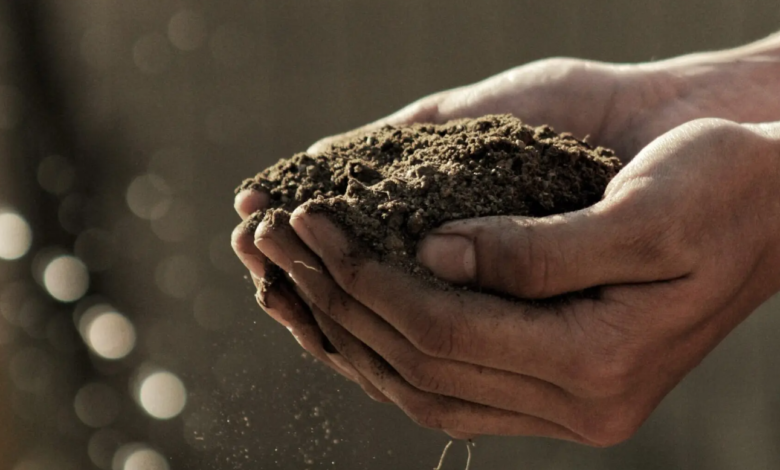World Soil Day 2022, where food begins

World Soil Day 2022, stop nutrient loss
(sustainabilityenvironment.com) – Did you know that there are more microorganisms in a spoon of the earth than people on the planet? And that, like humans, even soils need a balanced nutritional intake to stay healthy? To remind everyone today is World Soil Day 2022 (World Soil Day 2022), an international event that under the auspices of the United Nations, brings “down” the gaze of the general public. The event, officially born in 2014 thanks to the commitment of FAO, annually celebrates the importance of the earth for human life. The designated day is 5 December, chosen to commemorate the birthday of Bhumibol Adulyadej, King of Thailand, the country that supported the establishment of the Day.
The soil: where the feeding begins
For the 2022 edition, FAO has chosen as its theme “Soil: where food begins“. Soils, thanks to their extraordinary ability to form, store, transform and recycle nutrients, produce 95% of our food. The health of what we eat daily also depends on their health. Suffice it to say that of the 92 chemical elements found in nature on the planet, 18 are essential for plants and 15 are supplied directly from the soil. Macronutrients such as nitrogen, phosphorus and potassium but also micronutrients such as boron, copper and iron.
But to stay healthy they need a varied and balanced supply of these elements. Not too few to not lose the ability to support plants and crops. Not too many not create a toxic environment for animals and plants, and contribute to climate change. What happens when the land is not managed sustainably? That the balance is broken and the process of degradation triggered by pollution, fertilizer abuse and increased salinity, triggers a progressive impoverishment capable of endangering food security.
The World Soil Day 2022 reminds us that the effects of this neglect are already visible. In the last 70 years, FAO explains, the level of vitamins and nutrients in food has drastically decreased. It is estimated that 2 billion people in the world suffer from a shortage of micronutrients (the so-called “hidden hunger”); and that more than two thirds of the world population lack one or more essential minerals in their diet.
World Soil Day 2022, how to reverse nutritional imbalances
By 2050, agricultural production will have to increase by 60% globally – and almost 100% in developing countries – to meet food demand. But, as the FAO explains, as many as 58 percentage points of increase could be obtained simply by sustainable land management. That’s why World Soil Day 2022 reports a series of actions to prevent and reverse nutritional imbalances in agri-food systems.
- Sustainable use of fertilizers. The International Code of Conduct for the Sustainable Use and Management of Fertilisers, together with the Voluntary Guidelines for Sustainable Soil Management (VGSSM), provide the framework for the implementation of low practices. Impact adapted at the local level. Alternative sources of fertilisers (such as fertilisers and biofertilizers) should be promoted and new sources and technologies for cheaper, cleaner and more effective soil nutrition should be sought.
- Improve data and information on key soil characteristics. Soil maps capture the spatial variability of soil resources and help identify intervention hotspots by guiding localized interventions. Soil nutrient mapping is a key tool for improving fertilizer efficiency.
- Reloading of soils. Increasing soil organic carbon stocks through the global RECSOIL program can improve soil physical, chemical and biological properties, increase nutrient content, and reduce dependence on inorganic/synthetic fertilizers.
- Solutions based on nature. There is not a single solution to all soil fertility problems, but nature offers a portfolio of alternatives to increase nutrients in soils, favoring biodiversity, even microscopic, regulating the pH through the addition of organic matter (e.g. manure)involving food waste, diversifying crops and incorporating legumes in rotations.
- Monitoring soil fertility and fertiliser quality through standardized analytical methods.
- Allow farmers to adopt sustainable land management practices including through technical support and financial incentives. The Global Soil Doctors program is a worldwide effort.





